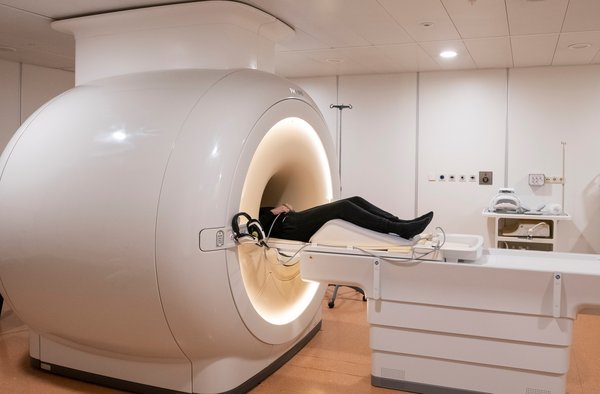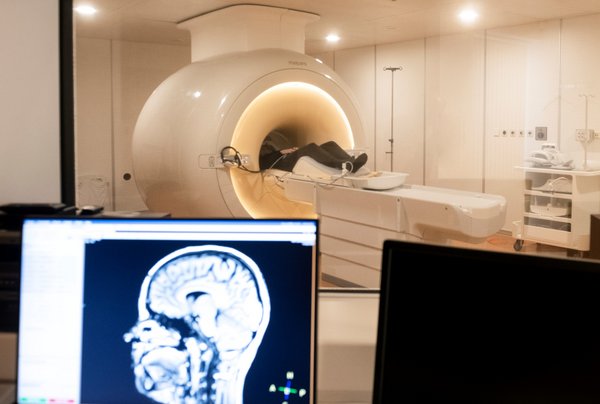Kempenhaeghe’s new MRI-scanner opens up a wealth of opportunities for science and innovation in the field of epilepsy. In addition to ‘regular’ clinical research on patients, the scanner will be deployed to contribute to scientific research in the field of neurology, MRI and imaging in the Brainport region.

State-of-the-art MRI serves multiple purposes
It took a thorough refurbishment of the MRI-scanner at Kempenhaeghe’s Academic Center for Epileptology for the system to once again become state-of-the-art. “Thanks to our cooperation with Philips, the scanner may now also be used for broad scientific research into brain networks”, explains Bert Aldenkamp, who is professor at the TU/e and trainer clinical neuro-psychology at Kempenhaeghe. “This not only fits in with Kempenhaeghe’s vision; it also contributes to the further development of expertise in epilepsy.”
Kempenhaeghe is initiator of a neuro-platform in which TU/e, Philips and the Gent University Hospital cooperate. “Our goal now is to become a new e/MTIC spearhead with three focal points: neurology (epilepsy, stroke, traumatic brain injury), neuro-psychiatry (autism and depression) and vulnerable groups (the elderly and mentally disabled)”, explains Aldenkamp. “Our MRI is the most advanced scanner in the region. As a relatively small and specialized hospital, we have over-capacity. This means the system – located in a friendly hospital setting - can play a key role in both scientific and clinical research into various neurological disorders by Kempenhaeghe and other parties. Part of the operational the costs are thus covered by scientific research.”
Hans van Dijk, head of the Clinical Physics department at Kempenhaeghe, explains that the refurbished MRI scanner is a fully digital system that generates very high quality images and supports multi-band, allowing the system to scan faster. “The high-quality images allow us to conduct research as part of our cooperation with TU/e, Philips and other parties.” For patients, the improved quality of the images means a correct diagnosis can more easily be arrived at. “In addition, this scanner enables us to continue EEG – fMRI research. This specific expertise is what is expected of a third-line center such as Kempenhaeghe. Kempenhaeghe is only one of three locations in the Netherlands where this is done”, Hans says.

In combination with strategic partners TU/e and Philips, the MRI at Kempenhaeghe has been transformed into a broad tool that is deployed in numerous projects. Neurologist/clinical neuro-physiologist Albert Colon believes that the clinical spin-off will be considerable. As an example, he mentions the PerStim project. “ Using EEG- and MR-imaging based transcranial electrical stimulation, the PerStim (Personalized neurostimulation) project investigates how treatments for patients with refractory focal epilepsy and prevalent co-morbid disorders can be personalized effectively. This is a huge technical challenge, requiring innovation of EEG-fMRI research and offering amazingly interesting opportunities.” According to Colon, this project is a perfect example of translational research, that combines technology with clinical practice. “This is where the cooperation between TU/e, Philips, Kempenhaeghe and the University Hospital Ghent manifests itself at its best”, he concludes.
Writers: Leonie Vink and Mirjam Brennand - Center for Sleep Medicine Kempenhaeghe